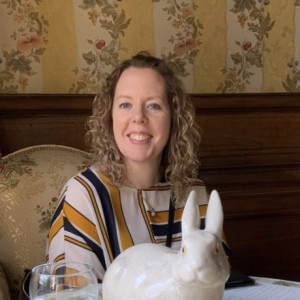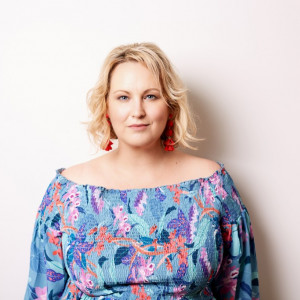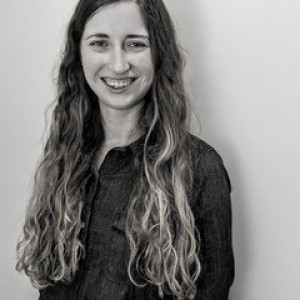How do you decide which clients to take?
Interview with Andrew, a freelance writer who works remotely
It’s always a tough thing to figure out which clients are worth your time and which ones aren’t. While you never really know if a client is a good one until you’re working with them, there are a few red flags that I tend to look for.
The biggest one is the price ratio versus the demands they are making.
If I see someone who has a large list of demands for a project, but a very small price point, it means the client’s going to be too much of a hassle for the pay.
It’s one thing to pay very well and have a large list of rules to follow for a project, but if you’re expecting premium level work for pay below minimum wage, you’re not the kind of person I’d like to work with.
Another red flag is when a client has strange and unrealistic expectations for a work. For example, I’ve seen plenty of proposals where a client wants a book written that will become a New York Times Best Seller, or worse, they want a screenplay made based off of a “million dollar idea” that they had. These kinds of clients don’t have much of a connection to reality and will end up being a real hassle in the long run.
Sometimes you’ll run into clients who offer really steady work, but at incredibly low pay rates. But since the job is so steady, you might be tempted to take their offer and work for them. Chances are if you have strict time limits and a client who’s badgering you to get the work done as quickly as possible, chances are that you’re working with a farmer.
A farmer is someone who accepts freelance contracts for his own, then hires out other people at a reduced rate to do the actual work. He takes the lion’s share of the profits for doing none of the work. It might seem like a good deal at first, but the truth is that you could be the one getting the actual contract and getting paid the full amount instead of getting paid peanuts by someone else.
Andrew became a full-time freelance writer after experimenting with freelance marketplaces. After the first month, he was already earning more than his full-time job.
Read full interview from Interview with Andrew, a freelance writer who works remotely.
Interview with Emma, a freelance marketing consultant
My first question is usually – is this a job where I have the right background to help? And that doesn’t have to be an exact background, and it could even be that I have the right mindset that can be applied.
Then it’s more of the softer stuff like do I ‘click’ with the client? Do I think they’re going to be reliable both from a payment perspective and from a day-to-day work perspective?
And finally, am I going to learn something from this work? You’ve got to keep learning so with every new client I always think about what’s in it for me from a development angle too.
Emma is thriving as a freelance marketing consultant—see her tips on managing client demands & making yourself marketable as a freelancer.
Read full interview from Interview with Emma, a freelance marketing consultant.
Interview with John, an international business writer sharing 15 years of insights
I focus on clients who need my help and who want to work with me while I work remotely. I focus as much as possible on clients who embrace remote work.
For over a decade, John has worked as an international business writer. See his insights on the state of remote work, freelancing, and attracting clients who are the right fit.
Read full interview from Interview with John, an international business writer sharing 15 years of insights.
Interview with Alyssa, a copywriter and content strategist
I evaluate potential clients' websites to see if I can see where my work aligns with what they need. Then, I always get on the phone to learn more about the client, what they need, and if we're a fit.
I used to dread calls, but I've found talking in real-time is the best way to find out if a client is right for you.
Alyssa has found her rhythm as a freelancer and founder of the blog, Freelancing Flow—see her tips for keeping it all running smoothly.
Read full interview from Interview with Alyssa, a copywriter and content strategist .
Interview with Emma, a founder helping companies shape their remote work policies
I try to take the clients that fall within my zone of genius.
If I know another professional could better help a client or I may not have time to meet a client deadline, I will let them know upfront. You have to guard against promising too much when you can’t deliver.
Emma carved out her own remote work niche—see how she manages her own virtual law firm while maintaining work/life balance.
Read full interview from Interview with Emma, a founder helping companies shape their remote work policies.
Interview with Rose, a co-founder growing the impact of remote work
In my client work, I only work with people who handle themselves in a certain way, ex. they are respectful, and they are growth-focused.
I've been pretty lucky (apart from having to fire one client in the earlier days), I seem to keep attracting the type of people I enjoy and who enjoy working with me.
There's a quote I heard recently from Sam Harris, "People just want to work with happy and creative strangers," I feel that in my client work and our non-profit work with Grow Remote.
Rose balances part-time SEO work with leading Grow Remote—see how she optimizes her time to build a community and resource for remote workers.
Read full interview from Interview with Rose, a co-founder growing the impact of remote work.
Interview with Andriy, a Wordpress developer & consultant
That's a good question.
These days I'm better at picking my clients than I was back a few years ago.
The most important thing to the client and me is for him/her to be open-minded and willing to take advice and being committed.
Also, if they have a budget is great.
And even if they can't afford me, but they're committed, I still try to help them by either offering advice referring them to other freelancers.
So that's how I qualify my clients these days.
Andriy has a simple approach to productivity—learn about his one essential remote work tool & his strategy for selecting clients.
Read full interview from Interview with Andriy, a Wordpress developer & consultant.
Interview with Erin, a videographer who found her freelancing niche
This is such an important thing to think about. I recently went through the process of switching my own client base.
I used to do a lot of weddings when I first got into videography, but I soon realized that it wasn’t something I would want to do for the rest of my life.
So, slowly I replaced my wedding videos with small business videos on my portfolio and framed myself as a small business videographer. Now I don’t do any more weddings and have really found my niche.
Erin is a videographer who carved out a successful freelancing niche—see how she optimizes her time and plans for the ups and downs of freelance work.
Read full interview from Interview with Erin, a videographer who found her freelancing niche.







